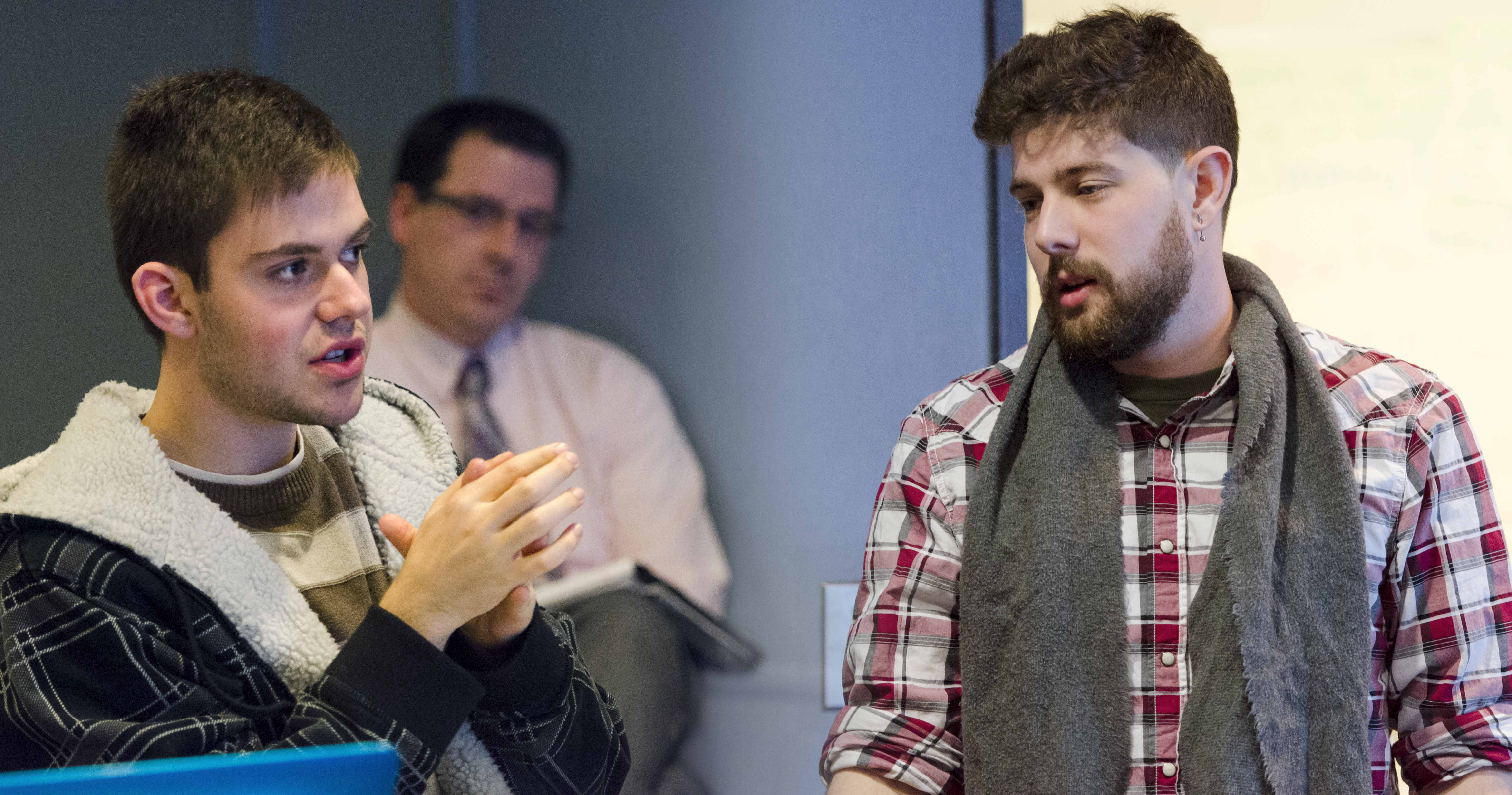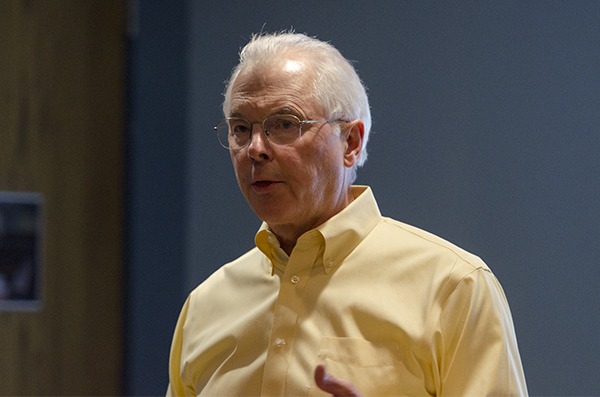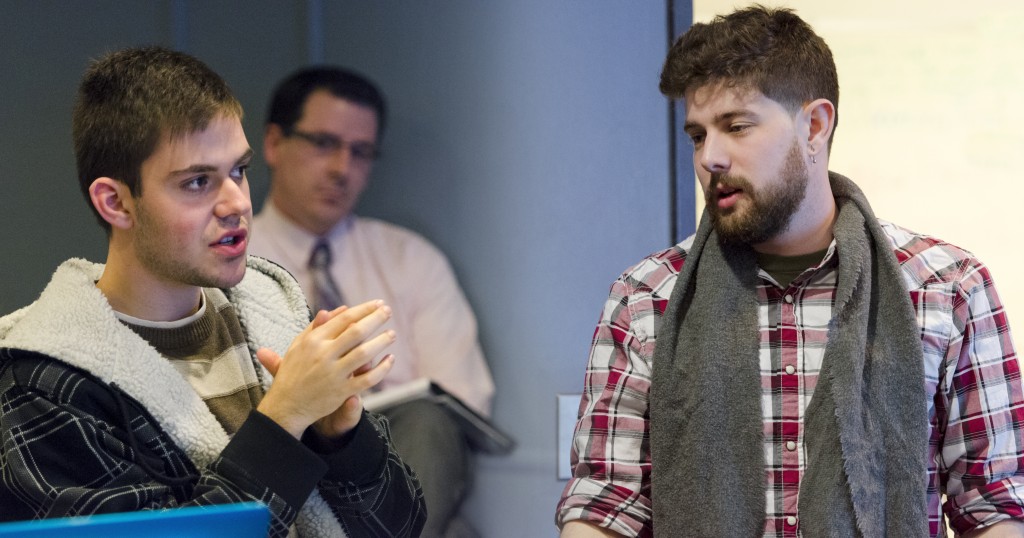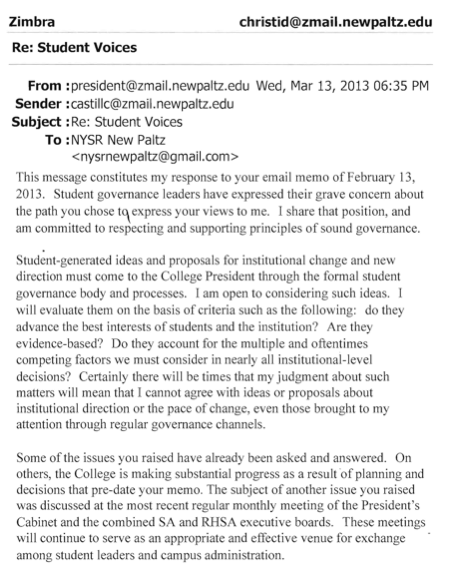
Read President Christian’s Response Here:
President Donald Christian’s response to “The State of Our College” address dominated discussion at senate for the second week straight.
Earlier this semester, members of New York Students Rising (NYSR) and other clubs and organizations collaborated on “The State of Our College,” outlining issues they believed were important to the campus community.
Some highlights included the Women’s, Gender and Sexuality Studies program, gender-neutral housing, admission rates, the campus marijuana policy, sustainability on campus, adding local food options, addressing class size and adjunct professor rates and transparency of campus administration.
At the end of the document, it called for a response from President Christian by March 13.
President Christian’s response, which totals almost 300 words, expressed shared “grave concern” about the process by which the document was sent to the President, and stressed that “regular governance channels” were the appropriate way for student concerns to reach the higher levels of administration.
“Student-generated ideas and proposals for institutional change and new direction must come to the college president through the formal student governance body and processes,” Christian said in his response.
After reading the response to senate during their March 13 meeting, Student Association (SA) President Josh Simpson said members of both senate and NYSR had differing opinions on the President’s response.
Simpson said many members of senate, some of whom helped craft “The State of Our College,” hoped to bring President Christian into a future senate meeting to discuss the document. However, Simpson said this will not occur unless the President’s visit is not framed around the document itself.
“I can see and respect that he is trying to do exactly what SA has been trying to do and respect the process in which the way concerns are brought to the President and cabinet level of the administration,” Simpson said. “Having a conversation that is framed upon the manifesto itself, is not that process.”
Despite this, Simpson said senators were upset with the “feeling of generalization” in the response.
Zachary Rousseas, a senator involved in writing “The State of Our College,” went a step further, calling President Christian’s response “humorous.”
“I’m astonished he wrote such a miniscule response,” Rousseas said. “In his response, he mentions that issues must come from the formal student government bodies, which essentially says he is going to ignore any issue that is brought up to him by a student – which is absolutely not right for our president to say.”
Rousseas said he feels that the President’s response “undermined” the senate as a whole, because the administration-level channels to voice student concerns do not represent the whole student population.
“[He said] the president’s cabinet should be the place to voice these kinds of concerns, but senators don’t even attend those,” Rousseas said. “So essentially what he is saying is that SA and RHSA E-boards are the only people who can bring concerns to him that he would actually listen to, but SA and RHSA E-boards don’t even represent the student body 100 percent.”
While some of the senators expressed discontent over the response, Simpson said moving forward, he hopes the senate can take the points addressed in “The State of Our College” and bring them to President Christian through the proper channels.
“[President Christian] said that as long as things are coming from an informed, researched position, that he is more than willing to have discussions,” Simpson said. “Now we are charged with bringing these points and topics from the [State Of Our College] into the process and reframing them and really making them come from the senate instead of the manifesto – which I understand.”


